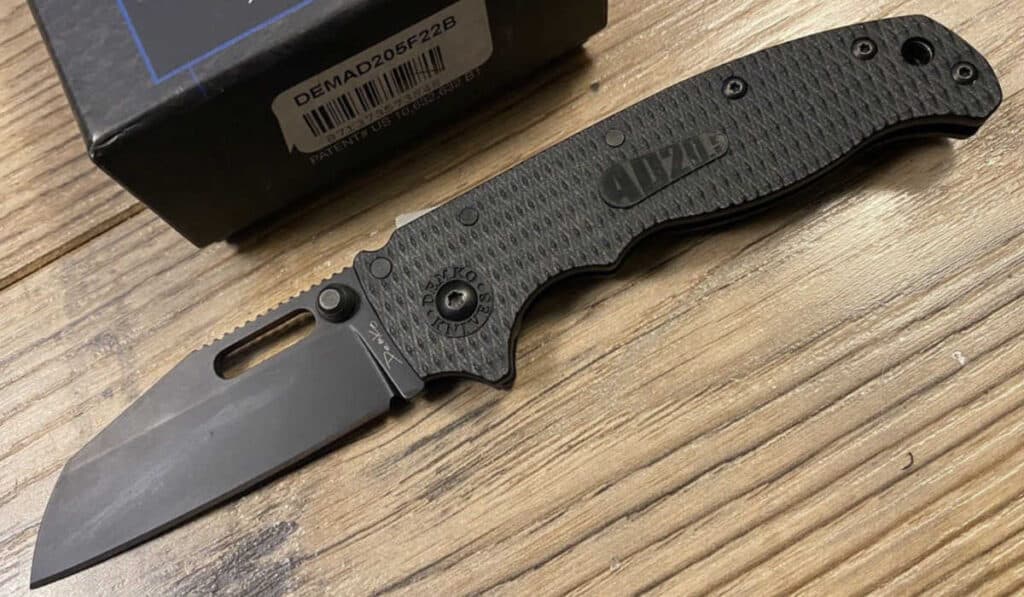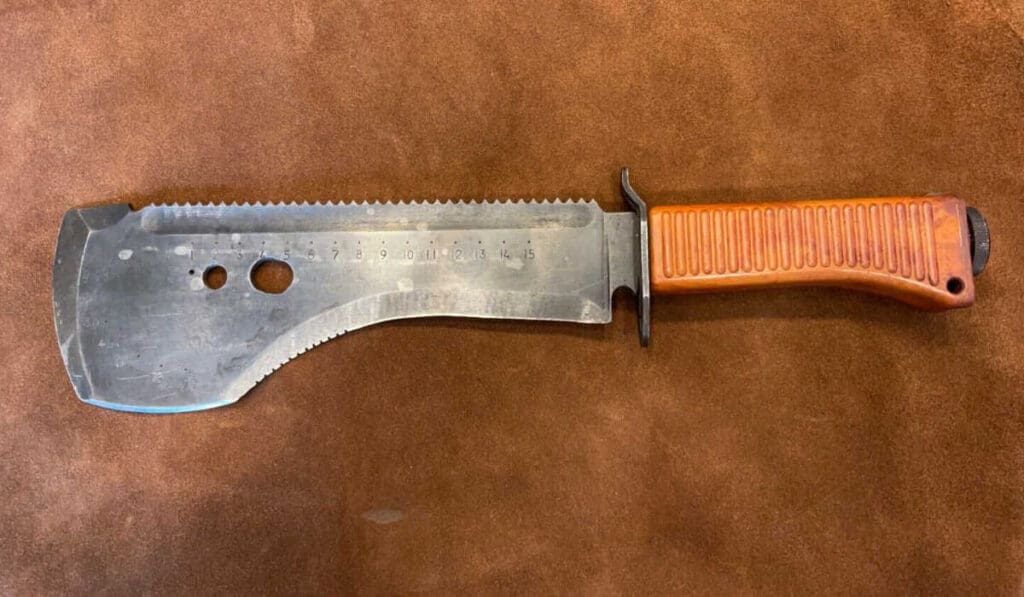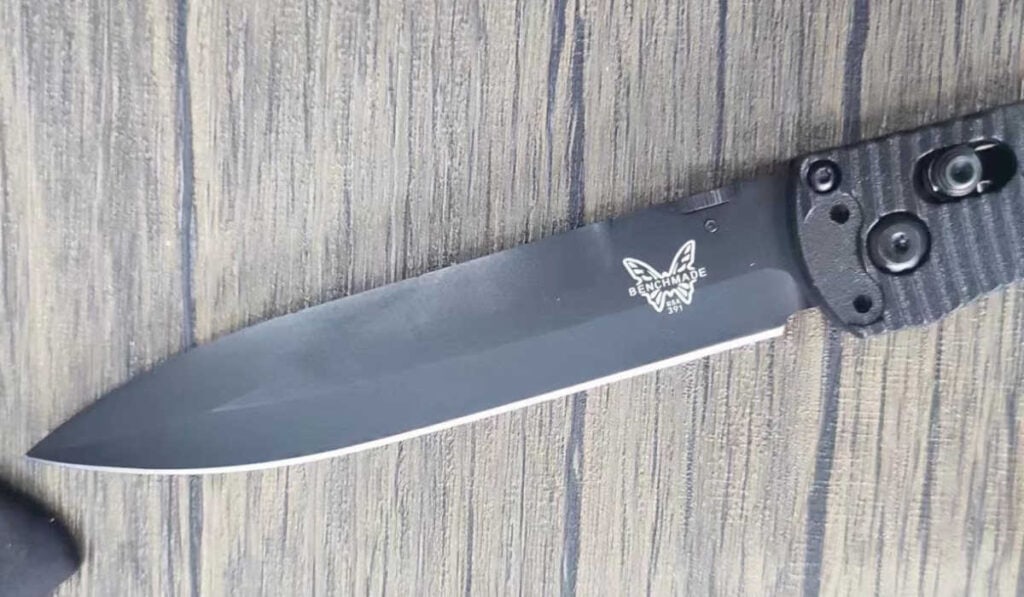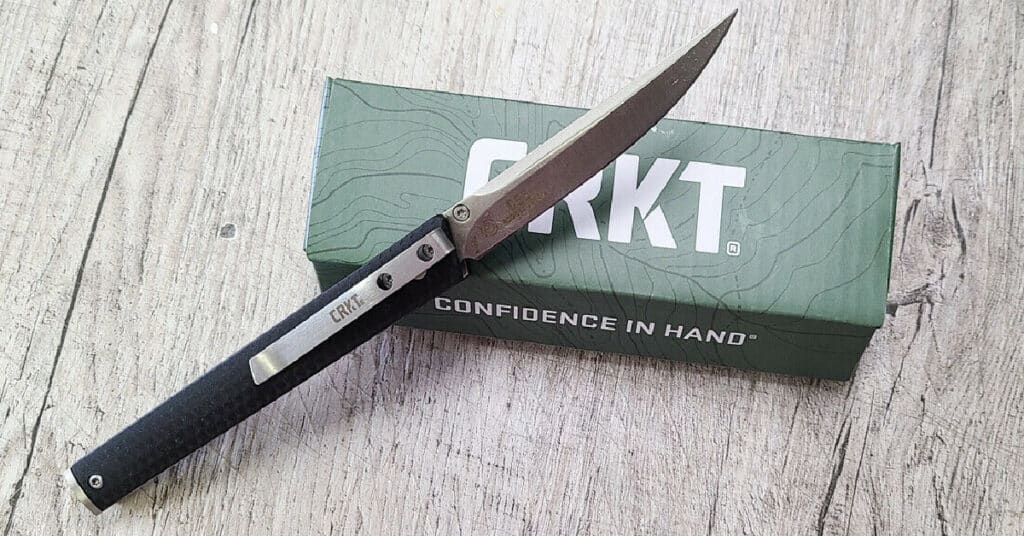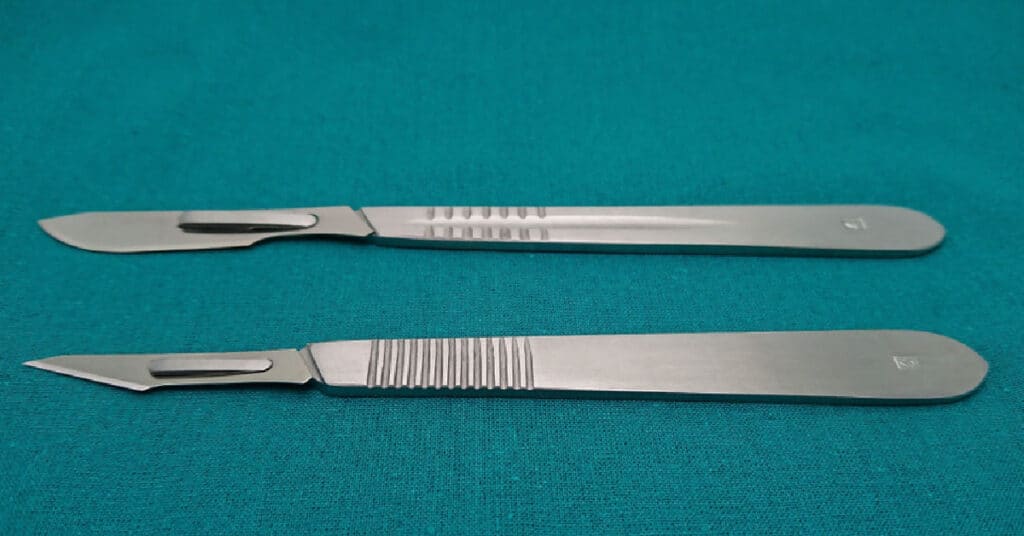Last updated on October 20th, 2023 at 09:23 pm
As an Amazon Associate I earn from qualifying purchases.
Louisiana’s knife laws are an important topic for anyone who enjoys owning or carrying a knife in the state.
Understanding the types of knives that are allowed, as well as the penalties associated with violating state laws, is essential for anyone wishing to legally possess and use their knives in Louisiana.
In this blog post, we’ll cover all aspects of Louisiana knife law, ensuring you know exactly how to stay within the boundaries of legal ownership while still enjoying your blade. We’ll discuss the types of knives permitted under Louisiana law, and any exceptions that may apply based on where you live.
Our Top Rated “50-State-Legal” Knives
*These knives are listed based on their broad legality across states, but always consult your local laws before making a purchase.
Types of Knives Allowed in Louisiana
Folding Pocket Knives
Folding pocket knives are common and allowed in Louisiana. They typically have a blade that folds into the handle, making them easy to carry and conceal. Examples include Swiss Army knives, multi-tools, and traditional pocket knives.
Fixed Blade Knives
Fixed-blade knives, including hunting and fishing knives, as well as kitchen cutlery such as chef’s and butcher’s knives, are also allowed in Louisiana. These feature blades that do not fold or retract into the handle, making them more durable than folding pocket knives.
Automatic & Assisted-Opening Knives
Automatic (or switchblade) and assisted-opening knives are legal in Louisiana. These types of knives have mechanisms that deploy the blade quickly, and as of August 1, 2022, there is no longer a prohibition on the intentional concealment of automatic knives on one’s person.
Prohibited Knife Types in Louisiana
Louisiana law doesn’t specify any prohibited knife types. However, certain municipalities have their own restrictions, for instance, Baton Rouge and New Orleans have ordinances against the possession and carry of switchblades.
Carrying Restrictions for Legal Knives in Louisiana
Carrying legal knives in Louisiana is subject to certain restrictions, and it’s crucial for knife owners to be aware of these laws. Violations can result in penalties.
Concealed Carry Restrictions
In Louisiana, there’s no specific restriction on the concealed carry of knives, regardless of the blade length.
Open Carry Restrictions
Open carry of knives is also permissible in Louisiana without any state-level restrictions on blade length. However, local ordinances may apply, so it’s important to check with your local government.
Carrying Knives on School Property
Knives may not be carried on the property of elementary, secondary, high schools, or vocational-technical schools, including school buses or at school functions.
Age Requirements for Knife Ownership in Louisiana
There are no age restrictions for knife ownership in Louisiana.
Penalties for Violating Knife Laws in Louisiana
Louisiana law allows municipalities considerable latitude with respect to local governance, which includes the ability to enact local knife ordinances. Violations of these local ordinances may be used for purposes of repeat offender sentencing under state law.
Exceptions to the Statewide Knife Laws in Louisiana
There are no specific statewide exceptions noted in the Louisiana knife laws. However, local laws may have exceptions, so it’s advisable to check with local authorities for any specific allowances or restrictions.
FAQs in Relation to Louisiana Knife Law
What size knife is legal in Louisiana?
There are no state-level restrictions on the size of knives you can own or carry in Louisiana, either openly or concealed.
Can you conceal carry a knife in Louisiana?
Yes, you can conceal carry any type of knife in Louisiana, as there are no state-level restrictions on concealed carry of knives.
Is a gravity knife legal in Louisiana?
Louisiana law does not specifically mention gravity knives, but they are likely considered legal given the state’s permissive stance on knife ownership and carry.
Louisiana State Knife Law References
Official Sources of Louisiana’s Knife Laws
- The main legal codes concerning knife laws in Louisiana can be found in the Louisiana Revised Statutes under:
- R.S. 14:94 – Illegal use of weapons or dangerous instrumentalities.
- R.S. 14:95 – Illegal carrying of weapons.
- Recent bills and acts such as HB 124, HB 892 (ACT 341), and the bill effective as of August 1, 2022, have also played crucial roles in changing knife laws in Louisiana.
Prominent Court or Criminal Cases Featuring Knives
| Case Title | Summary |
|---|---|
| State v. Cepriano | Defendant assaulted the victim with a serrated knife among other violent acts. |
| State v. Myers | Case mentioned in context of defendant’s right to confront accusers. |
| Louisiana v. Burton | Defendant found guilty of second-degree murder. |
| State v. Foley | Case discussed in relation to the Eighth Amendment. |
Timeline of Major Changes in Louisiana’s Knife Laws
- 1956: Introduction of a ban on switchblade knives in Louisiana, influenced by a national trend led by New York politicians.
- 2018 (May 25): Governor Edwards signed HB 892 into law as ACT 341, removing the 1950s-era ban on switchblades.
- 2021 (August 1): Louisiana HB 124 takes effect, allowing the carry of most knives for individuals with a concealed handgun permit, except for switchblades.
- 2022 (August 1): Law change no longer prohibits the intentional concealment of automatic/switchblade knives on one’s person.
Conclusion
Understanding and adhering to Louisiana’s knife laws is crucial for ensuring you remain within the legal bounds while enjoying your knives. The state is relatively permissive, but local ordinances can impose additional restrictions, particularly in major cities like Baton Rouge and New Orleans. Stay informed and check with local authorities to ensure you’re in compliance with all applicable laws and ordinances.
By familiarizing ourselves with the current knife law regulations, we can work together to advocate for a more knife-friendly environment while ensuring the safety and well-being of our communities.
Do Sheepsfoot Blades Have A Purpose? (Cuz They’re Ugly…)
Spetsnaz Machetes – Blades Of The Russian Special Forces
What Is The Actual Purpose Of A Spear Point Knife Blade?
CRKT CEO Review – Coolest, Most Worthless Knife Ever?
How Sharp Is A Scalpel? (Is It Sharper Than A Razor?)
Can You Shave With A Knife? (Yes, Here’s How)
As an Amazon Associate I earn from qualifying purchases.





